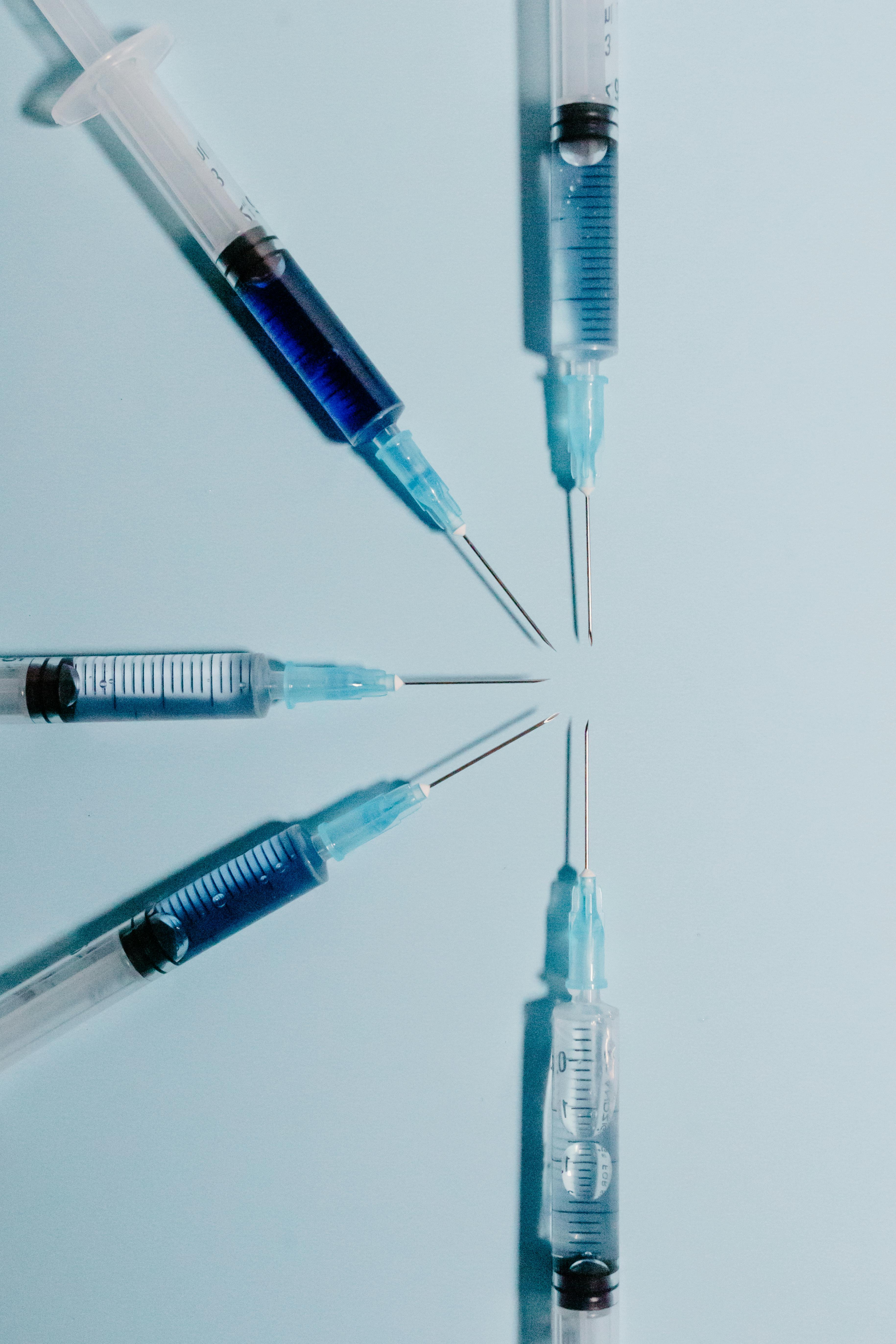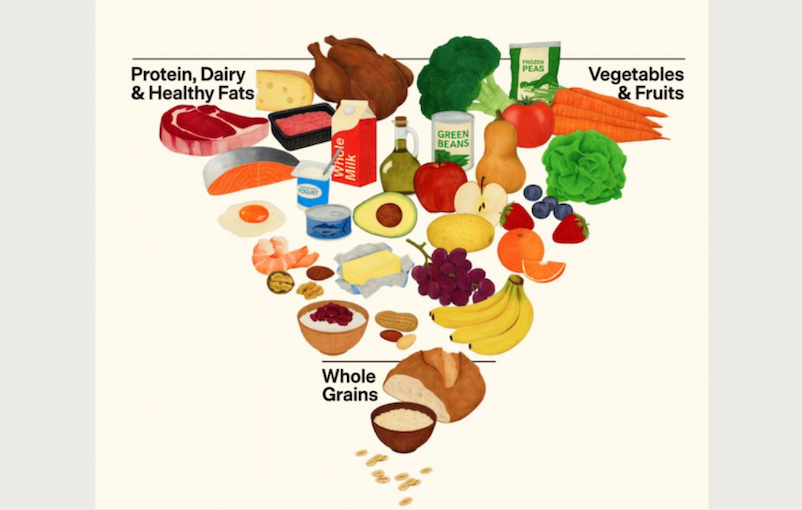Programming Your Baby’s Future Health: How to Own Your Nutrition in the First 1,000 Days
The first 1,000 days—from conception to age two—are the most critical window for nutrition. Here’s how to make the most of it.

A primary care membership for patients who want more. Primary Care. Nutrition. Wellness. All under one roof.
Learnings from the Nunona Team.
When you're growing a human, you're given plenty of advice but rarely the information that matters most: how your nutrition today directly shapes your baby’s health for life.
What you eat during pregnancy and postpartum doesn’t just fuel the moment. It helps program your child’s metabolism, immunity, brain development, and long-term disease risk. It also determines how well you recover, how stable your mood is, and how resilient your body becomes for the journey ahead.
The science is clear: the first 1,000 days, from conception through your baby’s second birthday, are the most important nutritional window of your life. Here's how to own it.
The First 1,000 Days: Why They Matter
According to the WHO and UNICEF, the first 1,000 days set the foundation for lifelong health outcomes. This period is when most of your baby’s organs, brain, and immune system are developing and when nutrition has the most profound and lasting effect on how genes are expressed, a phenomenon known as epigenetics¹.
Translation? What you eat, absorb, and store during pregnancy and early motherhood programs key systems in your baby’s body, including:
- Brain development
- Immune system strength
- Hormonal balance
- Metabolic health
- Risk of chronic disease later in life²
And because you’re the source, whether through the placenta or your breastmilk, your own nutritional status matters just as much.
Pregnancy Nutrition: It’s More Than Folate
If you’ve started taking a prenatal, you’re already ahead of the curve, but not all prenatals are created equal.
Here’s what really matters during pregnancy:
- Choline: Crucial for baby’s brain development and memory function, 94% of women don’t get enough³
- Iron: Supports blood volume expansion and oxygen delivery
- Magnesium: Helps reduce leg cramps, improve sleep, and support fetal growth
- B12 and Folate: Essential for DNA synthesis and neural tube development
- Omega-3s (DHA): For baby’s brain, eyes, and nervous system
But even if you're taking supplements, you may still be falling short. A 2019 study found that many pregnant women in the U.S. don’t meet recommended intakes for key nutrients like magnesium, choline, and vitamin D, even with a multivitamin⁴.
Why? Most prenatal vitamins are made from synthetic isolates that are hard to absorb and offer no energy, no blood sugar support, and no co-nutrients like fat or fiber that help with absorption.
Postpartum Nutrition: The Forgotten Chapter
The postpartum period is biologically intense. You’ve just experienced a major physical event, whether through a vaginal delivery or C-section, and now you're healing while feeding another human from your body, operating on little sleep, and navigating hormonal chaos.
The truth? Postnatal depletion can last up to seven years⁵. And most women don’t get the nutrients they need to rebuild.
Key postpartum nutrients include:
- Choline: Vital for cognition, mood regulation, and breastmilk quality
- Creatine: Supports energy production, tissue repair, and mental clarity
- Magnesium: Eases stress, supports sleep, and aids in hormone balance
- Iron: Replenishes stores lost during birth
- B Vitamins: Help regulate mood and energy levels
These aren’t optional, they’re foundational. Yet few products are designed to meet these needs.
Why You Should Consider Lab Work
While the first step is eating real food and choosing a comprehensive supplement, the next level is personalization. Lab work can help you assess:
- Iron + ferritin
- Vitamin D
- B12 and folate
- Omega-3 index
- Magnesium and choline levels
This helps identify what you’re low in, and what your body needs to function at its best during this high-demand window.
Talk to your provider about running a prenatal or postpartum micronutrient panel. At The Lanby, your Care Team can guide you through which labs to request and how to interpret them.
A Smarter Approach: Real Food Nutrition
We designed Nunona to solve the biggest gap in prenatal and postnatal nutrition: absorption.
Unlike pills or overly processed snacks, Nunona’s Mama Bites are made entirely from organic, whole foods and packed with both micronutrients and macronutrients to support:
- Better bioavailability
- Blood sugar stability
- Energy and satiety
- Hormonal and cognitive balance
- Full-spectrum nourishment during the entire 1,000-day journey
Every bite includes ingredients like spinach (for iron and folate), sunflower seeds (for choline), pumpkin seeds (for magnesium), and dates (for natural energy and fiber). They’re food your body recognises, and your baby benefits from.
And yes, they taste good (which is why moms actually remember to take them).
The Takeaway: Own Your Journey
You don’t need to be perfect. But you deserve to feel empowered, and supported, during one of the most important physiological transformations of your life.
Whether you’re TTC, pregnant, or postpartum, it’s never too early, or too late, to nourish with intention. When you feed yourself with intention, you lay the foundation for your baby’s health, and your own.
References
- Waterland RA, Michels KB. Epigenetic epidemiology of the developmental origins hypothesis. Annu Rev Nutr. 2007;27:363–388.
- Black RE, et al. Maternal and child undernutrition and overweight in low-income and middle-income countries. Lancet. 2013;382(9890):427–451.
- Wallace TC, et al. Choline: The underconsumed nutrient that matters most for women’s health. J Am Coll Nutr. 2023;42(1):101–112.
- Bailey RL, et al. Estimation of total usual dietary intakes of pregnant women in the United States. JAMA Netw Open. 2019;2(6):e195967.
- Thomas P. Postnatal depletion: the overlooked factor in maternal health. Int J Birth Parent Educ. 2018;5(4):23–27.

If you're curious to learn more about The Lanby, book a free consult call and we'll chat about how The Lanby can be your personalized long term health and wellness partner.

Kendall is a graduate of the University of Mississippi, with a B.A. in Integrated Marketing Communications and a minor in Business Administration. She received her certificate of Nutrition Science from the Friedman School of Nutrition at Tufts University.

Chloe holds a bioengineering degree from the University of Pennsylvania. As a breast cancer survivor, her insights shape The Lanby's patient-centric approach. Leveraging her healthcare strategy background, Chloe pioneers concierge medicine, bridging gaps in primary care.

Tandice was recognized with the Health Law Award and named a Ruth Bader Ginsburg Scholar at Columbia Law School. Tandice's editorial role is enriched by her insights into patient autonomy and gene modification legalities. Passionate about bioethics, she is committed to crafting patient-centric healthcare solutions.





